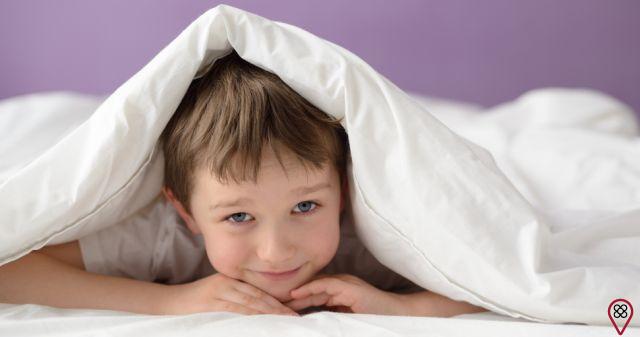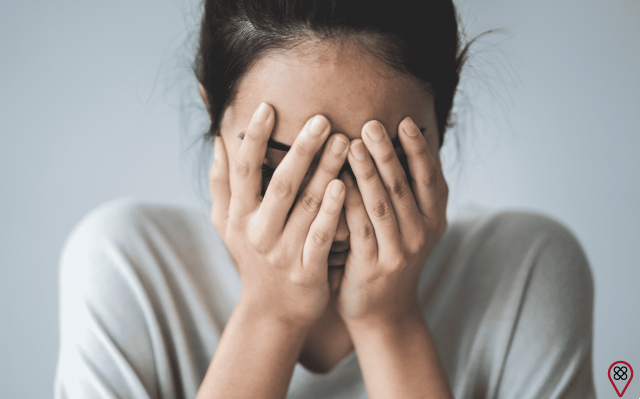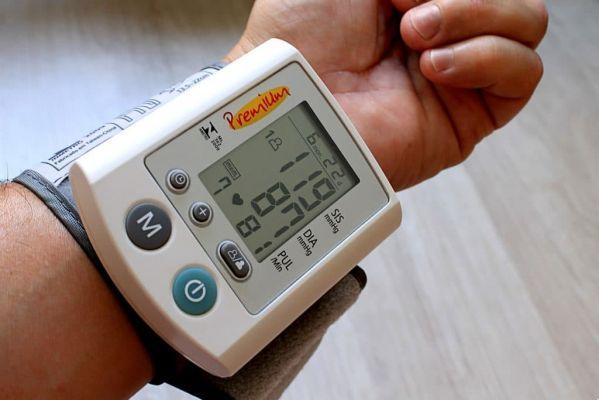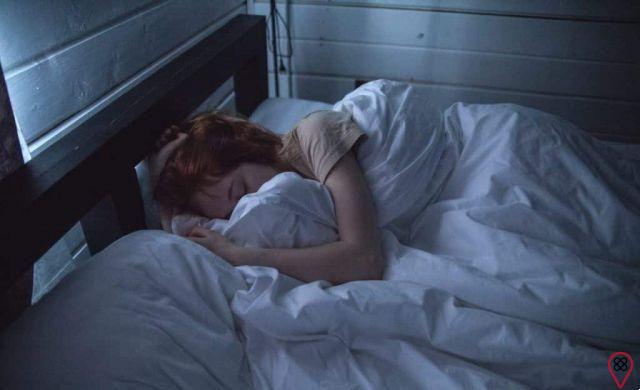
Among the various subjects considered taboo in our society, masturbation is one of the most astonishing in people. When it happens during childhood then it is usually a huge shock for the parents or guardians of the child.
At this stage, it can happen that the little ones put their hand inside their underwear or panties while watching television, position a stuffed animal between their legs or rub themselves on chairs or on the arm of the sofa. It is also the time when they become more curious about their parents' bodies and start asking (sometimes embarrassing) questions about the private parts of relatives and friends.
As much as the behavior can be initially frightening, it is necessary to understand that there is no malice in this type of attitude or questioning. As children are still unaware of social conventions like us adults, they explore their own bodies shamelessly – often even in front of other people.
That's why it's so important to understand what's going on in the little ones' heads during this period and help them deal in the best way with their own sexual discoveries. In addition to making them understand what happens when they touch the “pee” or the “cockatiel”, the childhood masturbation phase can be ideal for talking about privacy, intimacy and consent.
Shall we delve deeper into this matter? Keep reading and understand how to deal with it while protecting your child!
Child masturbation: what is it?
In the adult world, masturbation has an extremely sexual connotation, being a way to stimulate one's own libido or that of the partner. But when it occurs in childhood, around 3 or 4 years of age, the child does not have the discernment of what he is doing and does not understand or practice such an act as something malicious. This can cause a lot of confusion for parents, after all, catching a small child masturbating is a difficult scene to understand.
The truth is that interest and curiosity about the genitals start early in our lives. Although it varies from person to person, curiosity usually starts with training, as access to the genitals is freer. The child looks at his own penis or vagina and does not have malicious desires, but a desire to understand how this part of the body works.
When the little one touches or rubs an object in this region, he feels a kind of pleasure that has nothing to do with sex, but with the enormous presence of nerve endings in the genitals. It is like the baby who takes everything in his mouth or likes to play with the hair of adults: it is related to the discovery of new sensations different from those to which he is already used to. In the child's mind, they're just thinking, "How different it is when I move this part of my body!"
For parents and caregivers of children, understanding this is the first step to dealing well with child masturbation indoors. Let's move on to the next step: learning how to talk about this topic with children. Follow up!
Watch your reaction
If you catch your child or any other child masturbating, don't swear or make them think it's wrong. Screaming “Get your hands off there” or saying that this behavior is ugly can even generate the opposite effect, as a negative reinforcement – when there is repression by adults, it is common for the child to become even more curious and repeat the action. In addition, she may come to associate the pleasurable act with a feeling of guilt.
On the other hand, the ideal is not to treat child masturbation as if it were a trophy. Many parents show pride when witnessing their child performing an act that refers to sexual practice, especially if he is a boy. As we said, the child has no erotic intentions during these discoveries. Encouraging this type of behavior is harmful to little ones, because they still don't understand or feel the need for sexual pleasure.
How to deal with child masturbation?
The best way out is communication. It is important that you explain to the child that there are certain things that should never be done in front of or around other people, such as urinating, pooping or touching their private parts. Teach her what intimacy is, what can be done in public, and what should only happen in private.
In the case of children up to 3 years old, that is, those who have just finished potty training, try to divert their attention to other pleasures, such as doing school activities, playing and doing physical activities, such as running, skateboarding, playing games... The idea it is to distract him to occupy his little hand with some other stimulus, which should happen without major problems.
When it comes to older children, conversation is key. Avoid phrases like "You're almost a girl now, close your legs" or any other type of comment that could ridicule or even embarrass children - such actions can generate future trauma and self-esteem problems. Invite the little one for a conversation and reinforce the issue of intimacy. The act should not be treated as a wrong thing, but it is important to note that it can never be done in front of other people.
Take the opportunity to work on consent: the genitals are an important part of the body that no one other than the child can touch, except the parents or those responsible for their bath. And even in these cases, only with the permission of the little one. If the opposite happens, he need not be afraid or ashamed to tell you.
This conversation can be difficult, especially for dads, but there are already several songs and other tools on the internet that help to work sex education with more lightness and tranquility.
But what if the child still continues to practice masturbation? No need to despair, we help you!
You might also like:
- Female masturbation: it's time to break this taboo
- Know the Latency Period: Basic Concepts from the Child's Handbook
- Find out if kids can sleep with their parents!
- Go deeper into sexuality: one of the pillars for self-knowledge
Can it hurt? How to understand?
Child masturbation becomes a problem when the child doesn't want to do anything else and the acts are very frequent. Signs such as isolation, low energy, difficulty doing activities with other people, problems fitting in and talking to other children of the same age, tiredness, among other factors, are also signs that something is not going well. Both parents and educators need to find out at what time of day the practice occurs and seek the help of a psychologist.
As much as this subject is a little delicate for many people, it should be faced with the utmost of naturalness and seriousness. Child masturbation is an issue that can only be resolved if the parents really understand the whole situation. Also because, as we have seen, reacting with curses or in a negative way can cause countless traumas, including in the development and adult life of your child.
If, by any chance, you find it difficult to deal with childhood masturbation, don't think twice about seeking professional advice. The child does not do evil or to disobey, he is just in the discovery phase and everything he absorbs at that moment will be taken to the other stages of life. It's no shame not to know how to deal with child masturbation, but you have to seek information to deal with this phase in the best way!

























